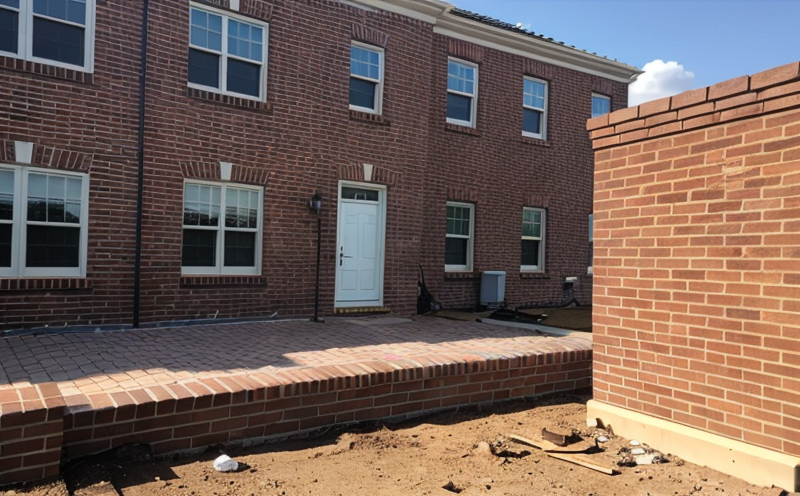EN 772 Bulk Density of Masonry Units
The EN 772 standard specifies methods for determining various physical properties of masonry units. This particular service focuses on the determination of bulk density, which is a crucial parameter in assessing the quality and performance of masonry materials. Bulk density plays an essential role in ensuring that buildings meet design specifications, structural integrity requirements, and compliance with international standards.
The bulk density test measures how densely packed a given volume of masonry units is. This information is vital for several reasons:
- Ensuring proper load-bearing capacity
- Evaluating the efficiency of the production process
- Verifying compliance with quality standards
- Optimizing material usage in construction projects
The test is conducted by filling a container of known volume with masonry units and then measuring the weight. The resulting density can vary significantly based on several factors, including:
- Type of mortar used (e.g., cement-based, lime-based)
- Size and shape of the masonry units
- Packing method employed during testing
- Degree of compaction achieved during installation
The importance of this test cannot be overstated. It directly impacts the overall performance and longevity of structures, influencing everything from energy efficiency to durability against environmental factors like freeze-thaw cycles.
According to EN 772-1:2018, the bulk density should ideally range between certain values depending on the type of masonry unit. For instance, solid concrete blocks typically have a higher expected bulk density than porous units like aerated autoclaved concrete (AAC). Deviations from these expectations could indicate issues such as improper mixing or poor compaction.
Our laboratory employs state-of-the-art equipment to perform this test accurately and consistently. Our team of experts ensures that each sample is prepared according to the specified procedures outlined in EN 772, ensuring reliable results every time.
Benefits
The ability to determine bulk density through EN 772 provides numerous advantages for stakeholders involved in building and infrastructure projects:
- Enhanced Quality Control: Ensures that only high-quality materials are used, reducing the risk of failures during construction.
- Optimized Material Usage: Helps in minimizing waste by accurately predicting how much material is needed for a project.
- Cost Efficiency: By selecting the right materials upfront, you avoid costly reworks and delays later on.
- Compliance Assurance: Ensures that all building materials meet necessary standards, avoiding potential legal issues.
In addition to these tangible benefits, accurate density measurements contribute to safer and more sustainable construction practices. This aligns with global trends towards green building initiatives where material efficiency is key.
Our service goes beyond just providing test results; we offer comprehensive support throughout the entire process—from sample preparation to interpretation of findings. Our goal is not only to meet regulatory requirements but also to help you achieve your project goals effectively and efficiently.
Customer Impact and Satisfaction
By leveraging our EN 772 bulk density testing service, customers experience significant positive impacts on their operations:
- Improved Decision-Making: Accurate data helps in making informed decisions about material choices.
- Increased Confidence: Knowing that your materials meet stringent standards boosts confidence and trust among all involved parties.
- Enhanced Reputation: Demonstrating commitment to quality can enhance your company's reputation within the industry.
- Cost Savings: Preventing errors early in the process saves money on both initial costs and potential rectifications.
We strive to exceed expectations by delivering precise, reliable results promptly. Your satisfaction is our priority, and we work closely with you to ensure that every aspect of your project runs smoothly from start to finish.
Use Cases and Application Examples
- New Construction Projects: Ensuring that new buildings are constructed using materials that meet specified density requirements is crucial for their long-term performance.
- Retrofitting Existing Structures: Determining the bulk density of existing masonry units helps in planning necessary renovations or repairs.
- Material Development: For R&D teams, this test provides valuable insights into how different materials perform under various conditions.
- Procurement Processes: When sourcing new suppliers or evaluating bids, bulk density testing ensures that you are getting the best quality at a fair price.
These tests are particularly relevant in sectors like residential housing, commercial real estate development, and industrial facilities where structural integrity is paramount. By incorporating EN 772 into your quality assurance protocols, you can ensure consistent performance across all projects.





